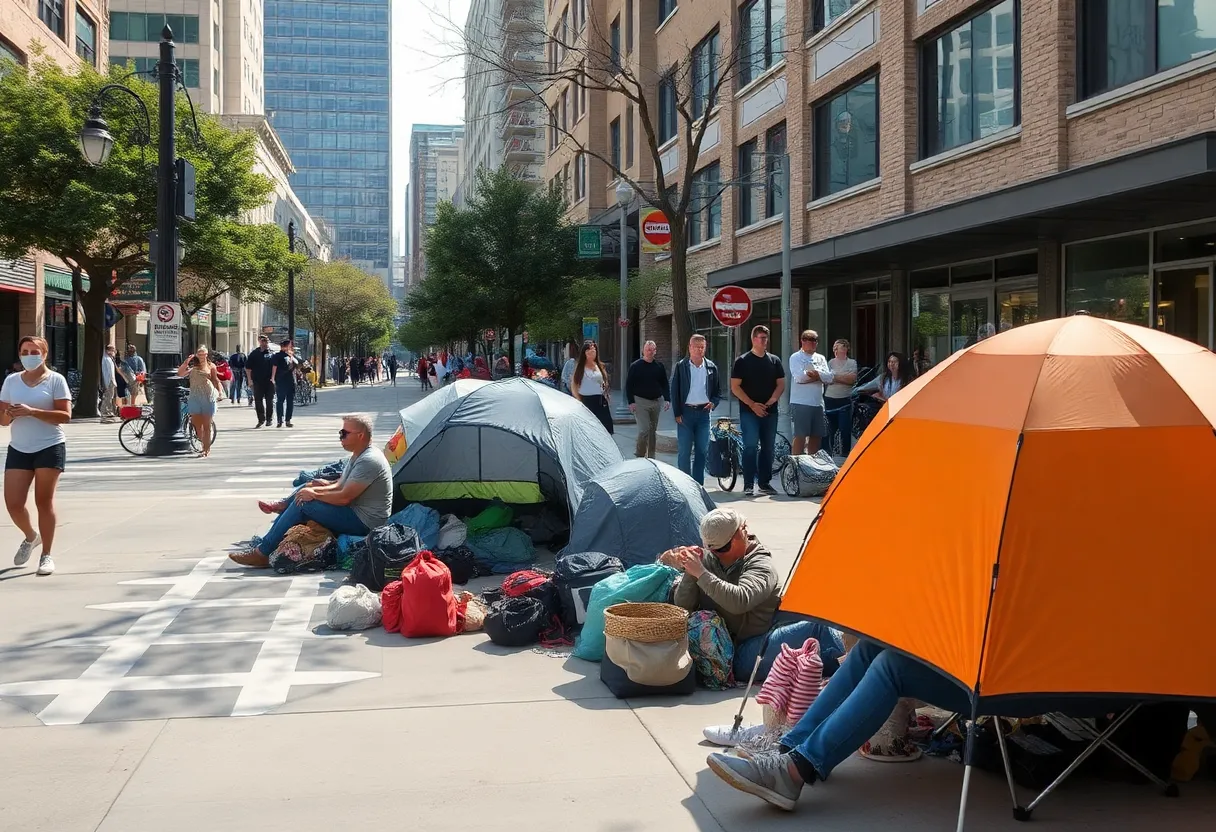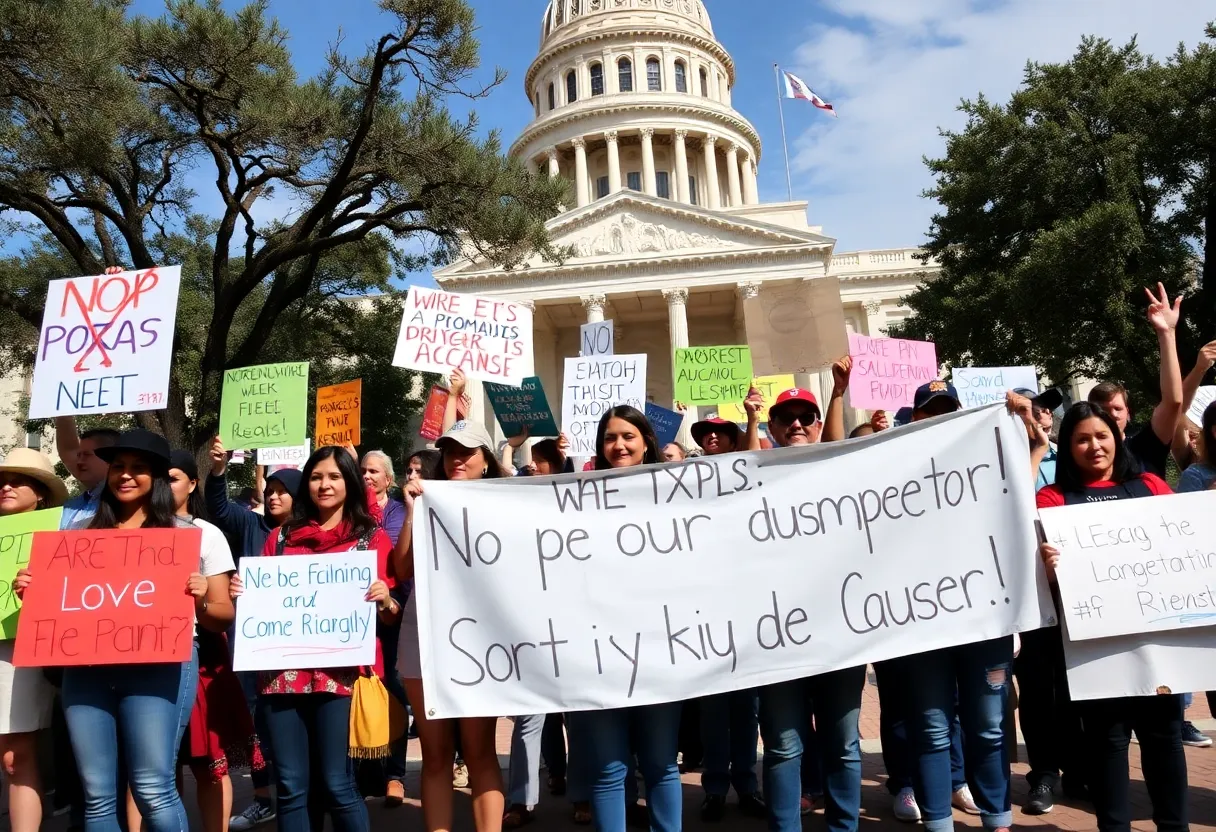News Summary
Austin’s legal landscape surrounding homelessness shifts as the 3rd Court of Appeals rules in favor of enforcing the city’s camping ban. Initiated by the advocacy group Save Austin Now, this ruling aims to address concerns raised by local business owners about safety and public health linked to homelessness. With approximately 5,308 individuals experiencing homelessness in the city, this decision is expected to impact ongoing efforts to balance law enforcement and support for housing initiatives.
Austin Sees Legal Victory for Homeless Camping Ban Enforcement
In Austin, a city known for its vibrant culture and music scene, a significant legal ruling has recently brought attention to the ongoing debate surrounding homelessness. The advocacy group Save Austin Now has successfully secured a ruling from the 3rd Court of Appeals which reinforces the enforcement of the city’s homeless camping ban, a measure that was reinstated by voters through Proposition B in 2021.
What’s Behind the Ban?
The essence of Proposition B was pretty straightforward: it re-criminalized actions such as lying down on public sidewalks and sleeping outdoors in certain areas of downtown Austin and near the bustling campus of the University of Texas. This initiative came about amid growing concerns from local business owners, who felt that the lack of enforcement of the camping ban could lead to various issues affecting their livelihoods.
In early 2023, Save Austin Now took matters into its own hands by filing a suit, arguing that the city was turning a blind eye to the enforcement of this important ban. Initially, the case faced a setback when District Judge Amy Clark Meachum ruled that the plaintiffs, which included local business owners, lacked standing. This dismissal was viewed as a hiccup, but not the end of the road.
Legal Back-and-Forth
The recent ruling from the appellate court acknowledged that the standing issue was indeed a concern but stated that the lower court should have allowed the plaintiffs to replead their case for another shot. This development has been welcomed by the plaintiffs, as it opens up new pathways to ensure that the camping ban is enforced moving forward.
The individuals who had initially raised the alarm about the lack of enforcement include Robert Mayfield, Laura North, Stuart Dupuy, and Bob Woody. They claim that the city’s inaction has led to an uptick in various criminal acts occurring close to their business properties, raising alarms not only for their safety but also for the overall public health and safety of the community.
Current Situation of Homelessness in Austin
As of September, it was estimated that about 5,308 individuals were experiencing homelessness in Austin. David Gray, who serves as the city’s homeless strategy officer, noted that last year, the Austin Police Department was involved in closing over 1,200 homeless campsites. This action was coordinated closely with the city’s Homeless Strategy Office, reflecting efforts to tackle this complex issue comprehensively.
In addition to the camps closed, the city also conducted 12 coordinated removals under the HEAL initiative, successfully relocating individuals within a short timeframe. Notably, about 80% of those approached1,200 citations and arrests related to the camping ban since its re-instatement in June 2021. However, local officials have emphasized the importance of balancing enforcement with support for available housing programs.
Funding and Ongoing Support
The Austin City Council has reiterated its commitment to supporting initiatives aimed at affordable housing solutions for individuals experiencing homelessness. As part of this commitment, the U.S. Department of Housing and Urban Development recently allocated $14 million to Austin and Travis County, a notable increase from the previous year’s funding. This money will go towards 16 local projects focused on tackling homelessness, hopefully providing a comprehensive approach to what is a very challenging issue.
Despite these funding efforts, advocates for affordable housing are voicing concerns about the implications of the homeless camping ban. They argue that shelters can often be full and that enforcing such bans is an inhumane response to a complex problem that requires thoughtful and compassionate solutions.
Looking Ahead
As the city navigates this intricate landscape of homelessness and the associated legal frameworks, the aim is clear. There is a collective hope that with renewed enforcement of Proposition B, Austin can not only maintain its reputation as a welcoming and vibrant city but also enhance public safety and health, ultimately benefiting all neighborhoods. The journey forward will undoubtedly require both community-driven solutions and effective governmental strategies to create a more inclusive and supportive environment for everyone in Austin.
Deeper Dive: News & Info About This Topic
HERE Resources
Austin Secures $14 Million to Combat Homelessness
Austin Volunteers Tackle Homelessness with Heart and Hustle
Austin’s Housing Goals Progress Report Released
UT President Jay Hartzell Transitions to SMU Leadership
Leadership Change at Downtown Austin Alliance
Austin Prepares for Extreme Heat with New Budget Plans
Jay Hartzell Leaves UT Austin for Southern Methodist University
Austin Police Officers Injured in DWI Incident
Austin Prioritizes Stability and Solutions for 2024
Austin City Council Member Ze Qadri Outlines Goals for 2025
Additional Resources
- Austin Monitor
- Wikipedia: Homelessness in Austin
- Spectrum Local News
- Google Search: Austin homelessness news
- Austin Chronicle
- Google Scholar: Proposition B homeless Austin
- Austin Monthly
- Encyclopedia Britannica: Homelessness Austin
- Austin Chronicle
- Google News: Austin homeless camping ban news








